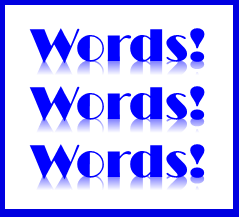 Without hesitation, most people trust their dictionary as the true authority on language. When there’s a debate about the validity of a word or phrase, or you want to know how it’s spelled, you look it up in the dictionary without questioning it.
Without hesitation, most people trust their dictionary as the true authority on language. When there’s a debate about the validity of a word or phrase, or you want to know how it’s spelled, you look it up in the dictionary without questioning it.
Essentially all words are made up in one way or another, but how do they get added to the dictionary? Is there someone who gets the final say in determining whether a word can and should be included in the dictionary? And is there a set process for adding words to the dictionary? The answer to both latter questions is: yes.
Who Is Responsible for Adding Words to a Dictionary?
Lexicographers are the individuals who are responsible for adding words to the dictionary. They’re avid readers and spend a lot of time each day reading books, newspapers, magazines, and online publications. Typically, they’ll have backgrounds in extensive research, linguistics, or history.
It’s also important to note that they never work alone. One lexicographer alone doesn't decide whether to include a word or phrase in the dictionary; she collaborates with other lexicographers to make these decisions. Although they collaborate, it’s also not common that lexicographers will argue over whether a word should be included in the dictionary because they all follow a consistent set of criteria when adding new words.
Three Basic Criteria a Word Must Have Before It’s Added to the Dictionary
1. A new word must have widespread use.
Lexicographers will highlight unique words and phrases they find as they read various documents. They’ll notate how often these unique words and phrases are used, where they’re used, and in what context they’re used. Then they’ll collaborate with other lexicographers to explore a wide range of findings of the word or phrase in question.
For a new word or phrase to be considered, it will typically be used in different regions, different types of publications, and sometimes in different contexts. There must be multiple citations available for the word or phrase for it to be a serious contender. For instance, it will appear in very different types of magazines like The Economist and Vogue. And individuals from the southern United States, as well as individuals from the northwestern United States will have used it (individuals from different regions).
2. A new word must have sustained use.
Words come and go in spoken and written language all the time, especially in this age of information and the Internet. There are a lot of slang terms or industry-specific terms used in any given year that don’t always stick around. It’s important, therefore, that a word or phrase being considered has been used over a longer stretch of time. The word or phrase must have already become a part of the language before it can be added to the dictionary. The dictionary doesn’t create language, it represents language as it already exists in the real world.
At first it might have seemed ridiculous to add terms like OMG (Oh My God) and FYI (For Your Information) to the dictionary, but they were actually used for quite some time before they were added to the dictionary. The Oxford English Dictionary found a quotation for OMG in a personal letter from 1917, and discovered that FYI originated in 1941.
3. A new word must have a meaningful use.
Lexicographers must be able to decipher what the new word or phrase means in each context. Basically, they need to be able to understand its definition, and its definition should be consistent throughout the varied sources in which they find the word or phrase. Take the word “selfie,” for instance; it’s included in the dictionary because there’s a tangible meaning behind it and people from different backgrounds know what it means. A selfie is “a photograph that one has taken of oneself, typically one taken with a smartphone or webcam and shared via social media.”
What’s fascinating to remember about how words and phrases are added to the dictionary, is that they won’t be added unless they’re already words and phrases that exist in the real world. People must already be using them in a variety of contexts and regions, they must be cited, and they must already have an established meaning. Here’s a helpful video to watch that breaks down the process.
Do you think this is a good process for how we add words and phrases to a dictionary? Share your thoughts with us in the comments section below.




